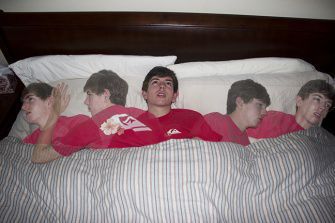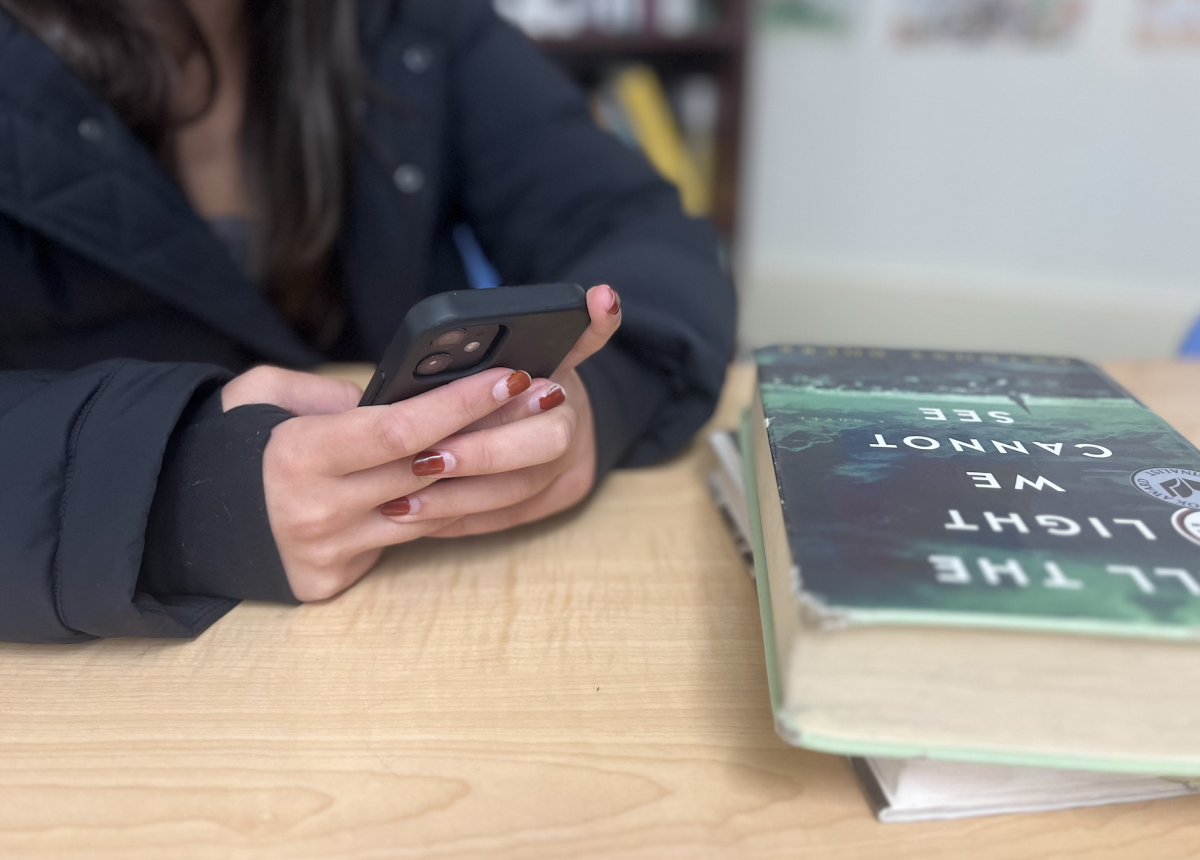Your eyelids slide closed under the heavy weight of exhaustion, so that only a sliver of the whiteboard is visible. You tune your teacher’s voice out as, for just a moment, you slip into a dreamy sleep.
This overwhelming feeling of tiredness, often due to a lack of sleep, is a common occurrence for many teens. A 2011 Centers for Disease Control study reported that 70 percent of teenagers do not get the recommended amount of sleep a night.

The Centers for Disease Control recommended teenagers get eight and half to 11 hours of sleep a night, however there are many conflicting studies about the exact number of hours. Dr. Thomas Nelyan, a UCSF clinical specialist in sleep, said in a recent interview that teens age 15 to 18 should get an average of seven to nine hours of sleep per night.
For junior Eve Schwartz, sleep is a highly desired part of her day, but she just finds that there just aren’t enough hours in the day to get a healthy amount of sleep.
“I don’t think [my fatigue] hits me until after the morning when I am finished with all of my tests. After that, it is pretty bad,” Schwartz said. “I feel like a zombie and I feel like I can’t pay attention at all.”
For Schwartz, it is the late end time of her dance practice that delays the time she goes to sleep after finishing her school work.
However, homework is not the only thing that keeps teenagers up at night. Their biological clocks are also altered during puberty, making it more difficult to go to sleep early and get the suggested amount of sleep, according to Neylan.
The biological clock is the genetically programmed part of the body that regulates the rhythmic changes throughout the day.
“Adolescents tend to be more night owls,” Neylan said.
During adolescence, the body delays the release of melatonin, the hormone that causes people to fall asleep, later on at night. This phenomenon is referred to as “phase delay of sleep.”
One way to deal with phase delay of sleep is to be exposed to bright light for 30 minutes early in the morning according to Neylan. However, phase delay of sleep itself is not always an issue.
“[Phase delay of sleep] is only a problem because somebody’s internal rhythm does not match to social demands,” Neylan said.
Not getting the suggested amount of sleep at night can result in an inability to concentrate on and process tasks, unhealthy diet changes, weight fluctuation, and many other negative health effects according to the Centers for Disease Control.
Because school takes up the majority of a teenager’s day, performance in class is one of the main concerns when someone is sleep-deprived. Schwartz said both her school work and her social habits suffer when she does not get enough sleep.
“A lot of time when I am on break or lunch I don’t even feel like doing anything or talking to anyone just because I am so tired,” she said.
Schwartz said that she is not the only one who struggles with getting enough sleep.
“Everyone stays up, especially if you are an upperclassman and everyone knows that,” she said. “I feel like it’s not something that only I suffer from – its something that a lot of people suffer from and everyone kind of just understands. Some people are just better at dealing with it than others.”
Much research has concluded that the alarmingly high number of sleep-deprived teenagers is largely a result of society’s early-morning start times. However, there are some occurrences in which there is a biological dysfunction in the circadian rhythm, which results in a sleep disorder.
As a result of these recent sleep research findings, several schools across America pushed school start times back to accommodate the teenage biological clock.
After shifting start times back 30 minutes in the morning, a school in Minneapolis saw a dramatic decrease in dropout rates, a substantial improvement in attendance, and fewer disciplinary referrals, according to a study done by the University of Minnesota.
The National Sleep Foundation suggests that one should maintain a regular sleep and wake time, establish a relaxing bedtime routine by adjusting the room temperature, finish eating two to three hours before bedtime, and avoid caffeine in order to maintain a healthy sleep hygiene.
“Teenagers have to value the need for sleep,” Dr. Neylan said. “You have to make choices that make [getting the recommended number of hours of sleep a night] possible.”











